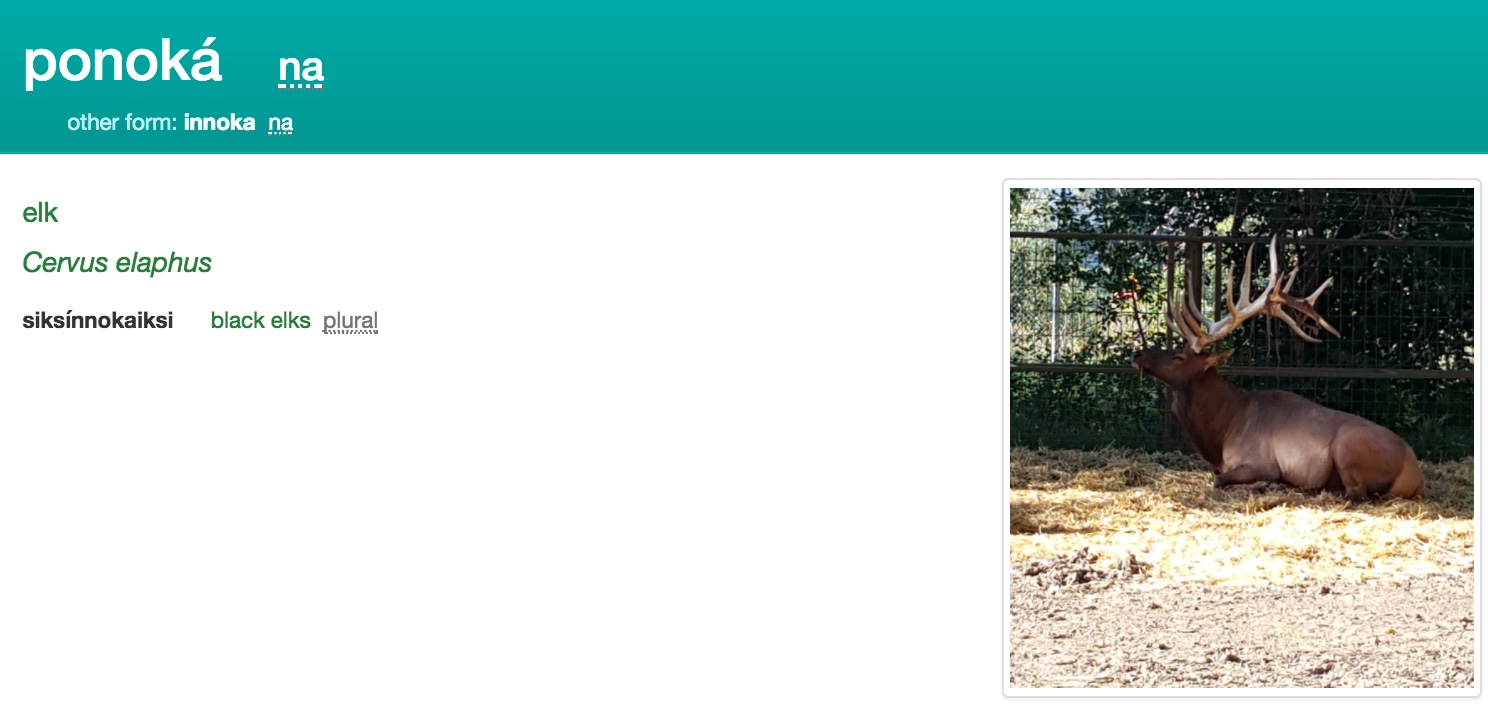Nouns describe people, animals, places, things, and abstract concepts. For example:
| Blackfoot | English | |
|---|---|---|
| Sound | aakíí | ‘woman’ |
| Sound | ponoká | ‘elk’ |
| Sound | Sikóóhkotok | ‘Lethbridge’ (literally: “black rock”) |
| Sound | sopo | ‘wind’ |
| Sound | atsiníkssin | ‘story’ |
Blackfoot nouns usually have endings (called inflections) that can be added to a stem to indicate various distinctions such as number (singular and plural), animacy (animate and inanimate), obviation (proximate and obviative), and possession.
Blackfoot nouns may also have prefixes that indicate possession
All nouns in the dictionary have a category label that starts with n. This label is found in the entry bar immediately following the Blackfoot word.

Many Blackfoot nouns have slightly different forms depending on where they occur in the word. For instance, the noun ponoká sometimes changes to innoka if something else comes before it, such as the element sik(s) ‘black’. To say ‘black elk’ we do not say sik-ponoká but sik(s)-innoka. If a noun has such a variant, it is listed under the main form as an ‘other form’.
